On May 27, 2022 a series of lectures on biomedical engineering was held at INOFEIT. The lectures were held within the activities of the course Biomedical Electronics and were supported by the Digital Innovation Hub (DIH) INOFEIT and the Macedonian section of the IEEE through its departments: the Joint Signal Processing and Engineering Department in Medicine and Biology (SP / EMB), the Joint Department for Electronic Components, Instrumentation and Measurement, Semiconductor circuits (ED / IM / SSC), student departments (SC37 and ED15), as well as the affinity group of lifelong IEEE members (LM80077).

In his lecture, Filip Makraduli, MSc, spoke about the new approaches used to interpret the work of deep learning models designed to detect the presence of Covid-19 in lung scans made by Computed Tomography (CT). Explaining how these models make their decisions is crucial to their application in clinical practice. The results he presented were part of his research done during his master’s studies at Imperial College London, London, United Kingdom.
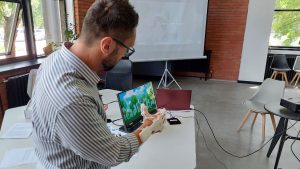
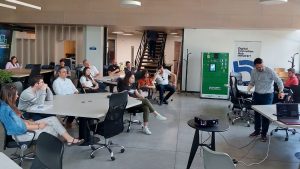
On the topic of Digital Active Rehabilitation, a lecture was held by Gligor Kushoski from the company MEDITEK. He presented the devices for digital active rehabilitation: Smart Glove and cognitive software – Cognition. The repetitive learning they motivate plays a significant role in improving neuroplasticity as well as the benefits it offers.
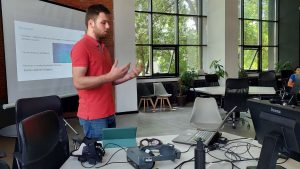
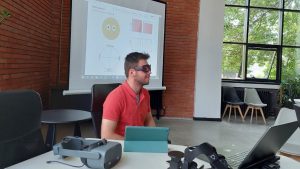
Simon Stankoski, MSc from Emteq Labs talked about Emotion Recognition using sensors in virtual reality. In his lecture he demonstrated the latest achievements of the company in the field of wearable devices equipped with advanced biometric sensors through which the emotional state of the user can be measured in real time – the emteqPRO virtual reality device and smart augmented reality glasses.
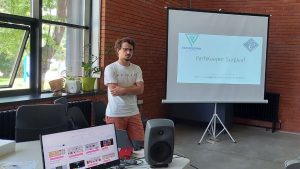
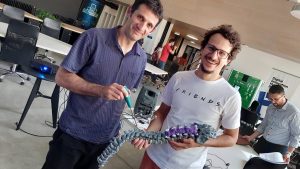
In the final lecture, Bojan Matovski from the company PathKeeper Surgical talked about Monitoring medical devices using a 3D camera. The company is developing a navigation system for spine operations that includes preoperative software planning, real-time medical instruments, and postoperative data analysis. Topics still in research and development were also presented, including: segmentation of 3D vertebrae with machine learning, support for minimally invasive surgeries, and support for magnetic resonance imaging and C-ARM / G-ARM.



